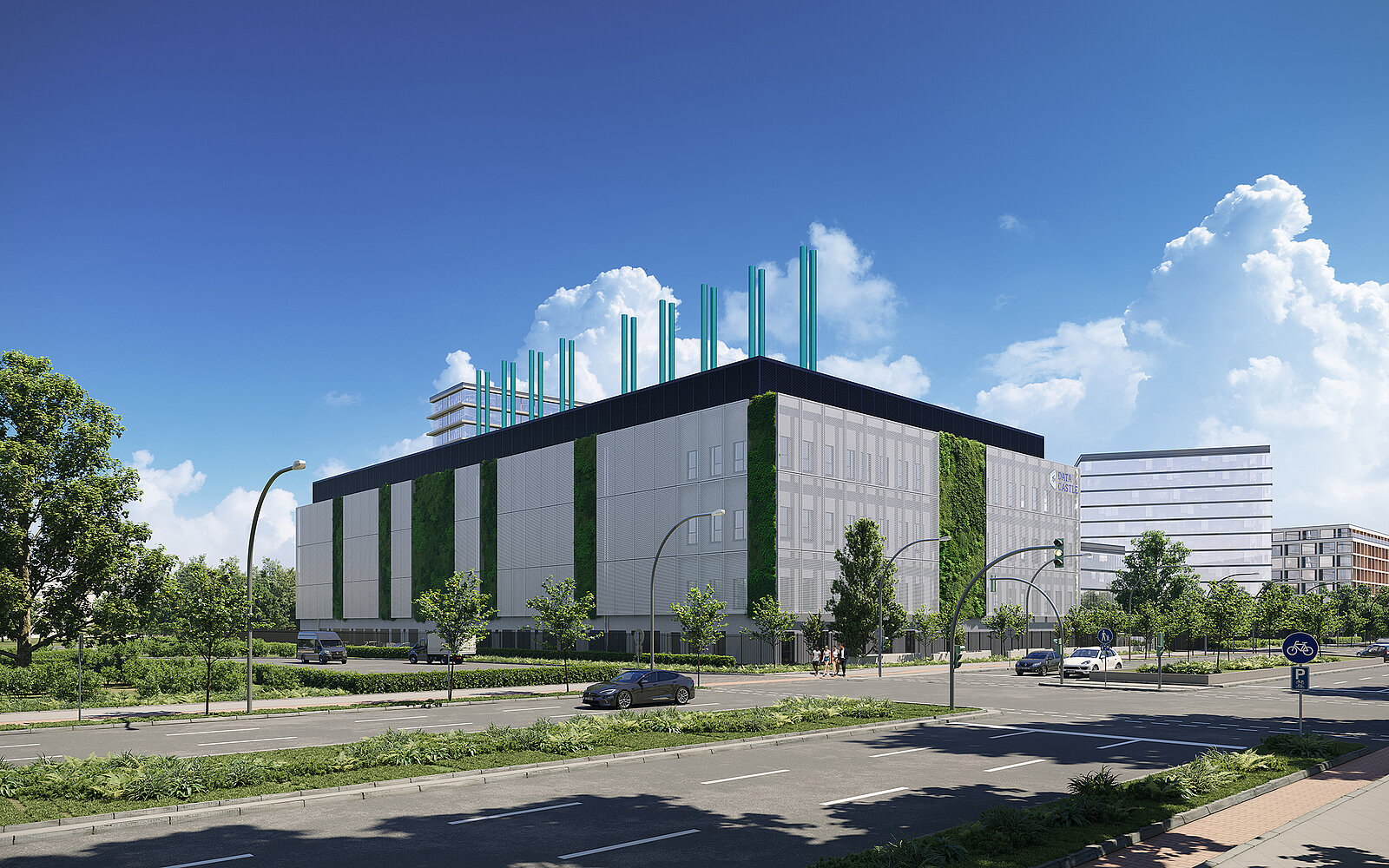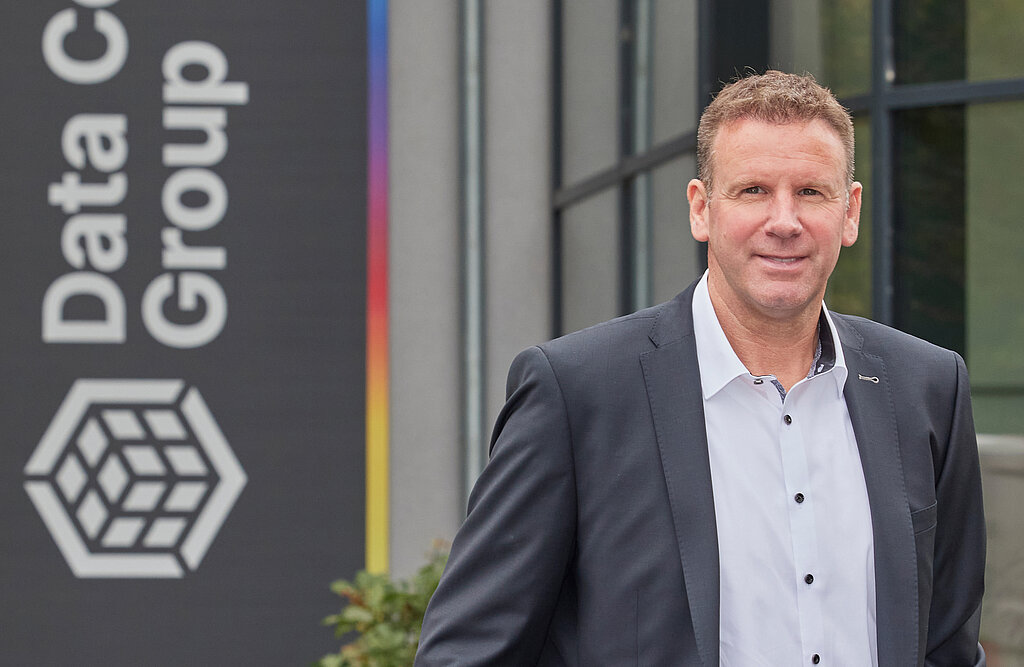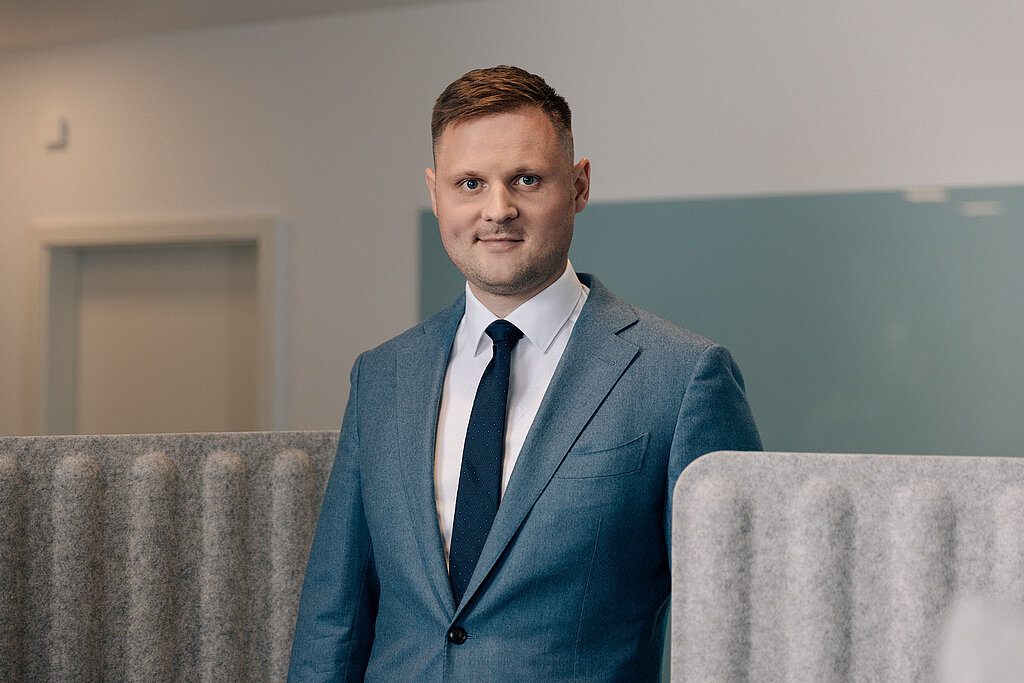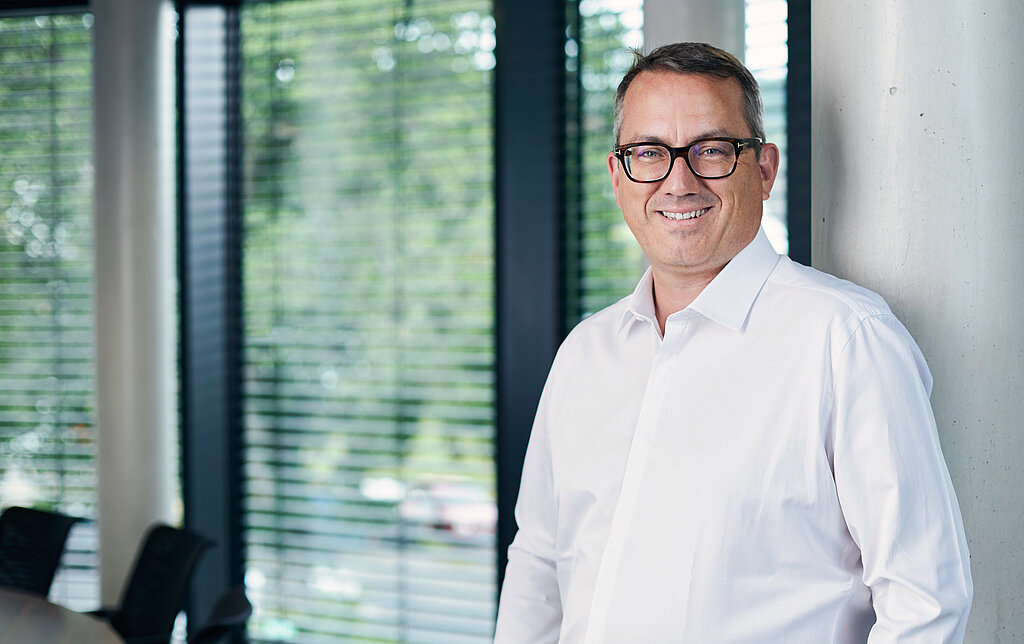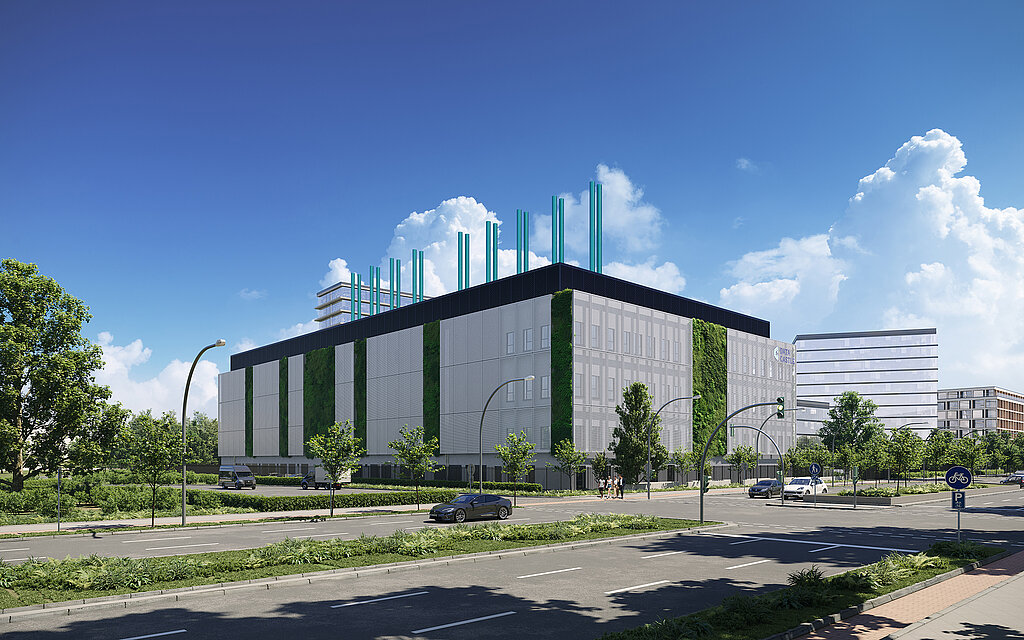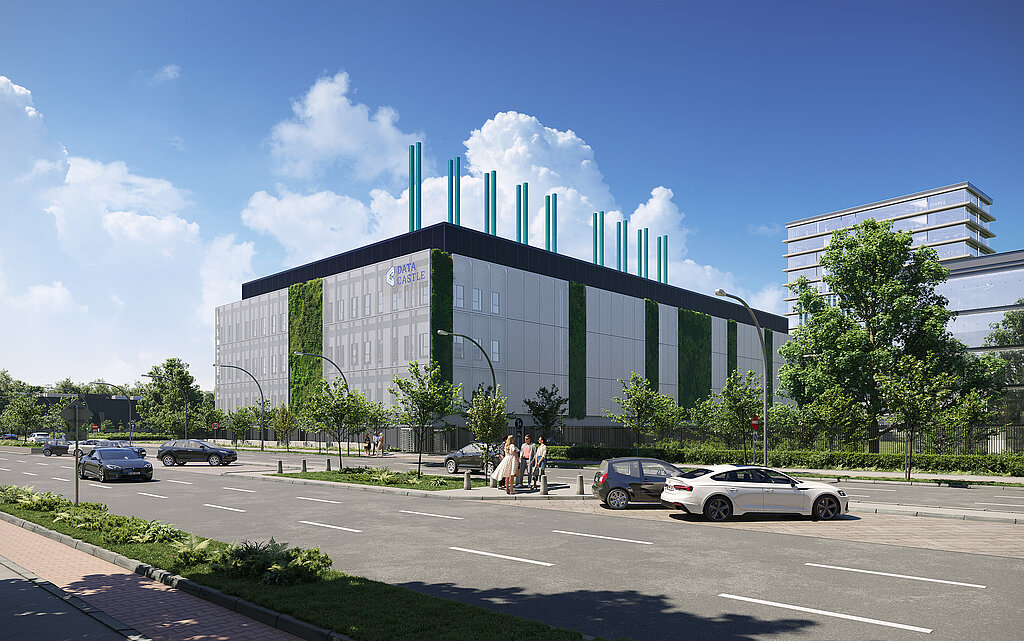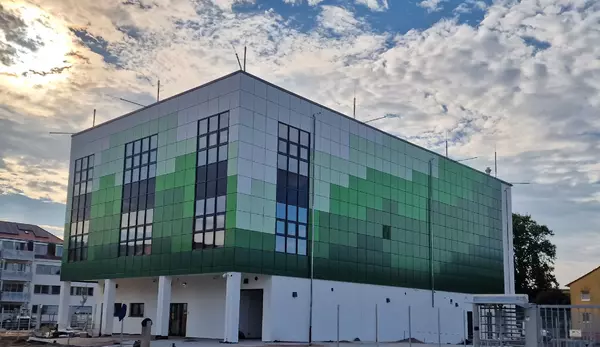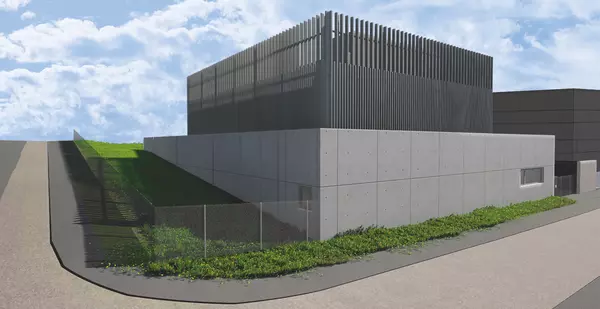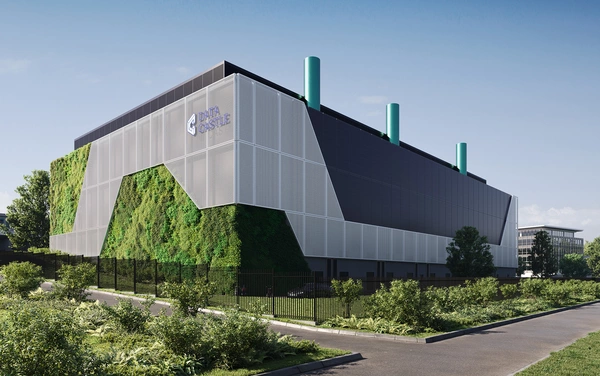An open innovation space called in.grid is being built between the Havel and Spree rivers in the Smart District Spandau, Berlin by investors INVESCO REAL ESTATE and KAURI CAB, in which high-tech, research and life science companies are given the opportunity to settle here.
Part of the quarter was acquired by DATA CASTLE. The company will build a high-performance data center called BER1, which will be characterized by high energy energy efficiency, the use of renewable energies and an innovative concept for waste heat utilization.
On the 12,000 m2 data center site, a total of around 10,000 m2 of data center space with room for around 4,400 racks will be available for rent on three floors. With a total capacity of 40 MVA and 26 MW for the pure IT load, the data center is one of the largest in the capital.
Completion and commissioning are planned for the end of 2025. Marketing and positioning of the project on the open market are already underway. "We are already in advanced talks with DAX companies, public sector institutions and some global companies that offer cloud services - so-called hyperscalers," explains Jörgen Venot, CSO of DATA CASTLE.
Digital driver for the capital
The global metropolis of Berlin has developed into a leading tech location for information and communication technology in Germany and Europe. With its numerous technology and innovation parks, the German capital is a pioneer in the fields of artificial intelligence (AI), additive manufacturing (AM), the Industrial Internet of Things (IIoT), virtual/augmented reality (VR/AR) and blockchain. These key technologies are driving innovation and offer many companies strong opportunities for development and growth.
"The BER1 data center provides the computing capacity currently required and is already taking future requirements into account in its design. For example, for topics that require an extremely high power density, such as AI, predictive analytics or simulations for research and development," says Ralf Siefen, CEO Data Center Group.
In addition to the location advantage of data hosting in Germany (and thus GDPR compliance for data protection and copyright), the city also offers first-class infrastructure and fast connections to the highway and local and long-distance public transport.
"Excellent connectivity, low latency times and the high level of protection that private data enjoys here make Germany very attractive for investments in data centers," explains Christopher Stief, CEO of DATA CASTLE.
Despite a stable power grid and reliable energy supply, new technologies in the field of energy efficiency are also a key issue for this location, which is why sustainable and renewable solutions are more relevant than ever.
Sustainable construction and operation
To ensure maximum availability, a sufficient supply of electricity from 100% renewable energy sources has already been secured by the electricity supplier. The data center is supplied directly from the nearby substation.
The data center will also be equipped with the appropriate technology for heat recovery. The waste heat will be fed into the commercial district's heating network by the project developer and a contracted energy service provider. This thus serves as an additional emission-free energy source for the Open Innovation Space.
At the data center itself, areas will be equipped with photovoltaic systems to generate sustainable electricity for the office workstations.
The use of state-of-the-art technologies and energy-efficient systems ensures that the data center's energy consumption is as low as possible. This results in an energy efficiency level, the so-called Power Usage Effectiveness (PUE), of just 1.2, which meets the legal requirements for the economical consumption of new data centers.
In addition to the requirements of the new Energy Efficiency Act, the data center also meets other specifications. The building is certified to LEED Platinum and has therefore achieved the highest level of this certification (LEED = Leadership in Energy and Environmental Design). This internationally recognized label for ecological construction certifies by independent third parties that a building has been constructed and designed in an environmentally friendly way.
Energy and ecological criteria must be met in various areas. For example, the use of natural substances and materials that can be recycled. Conventional building materials that are harmful to the environment and health are replaced in many places during the construction of the building. For example, recyclable mineral wool insulation material is used in this data center instead of polystyrene.
The greening of the building also ensures greater sustainability in construction. The roof and all four sides of the façade of the data center are planted with greenery. The vegetation serves as a heat shield in summer and thermal insulation in winter, acting as a natural air conditioning system. The absorptive capacity of the vegetation also protects against UV rays, hail, pollutants, dirt and noise.
Attention is also paid to efficiency in terms of water consumption: The surface water is channelled into planted soakaways and is used to irrigate the green areas. This keeps the rain in the natural water cycle and also relieves the burden on the sewer network in the event of heavy rainfall.
Secure and highly available for the future
The data center follows a modular and expandable principle and is therefore equipped for the future. In addition to meeting qualitative quality criteria and safety features, the data center is also designed to meet economic requirements: Operation, maintenance and repairs can be carried out without interruption and in a highly efficient manner.
The highest level of property and access protection is guaranteed by the equipment: CCTV with complete coverage of the site, three-meter-high perimeter protection, security bollards on the building perimeter and personnel airlock for complete authentication. Early fire detection and extinguishing systems as well as the redundant design of the technology ensure the greatest possible physical protection and therefore 99.9% availability.
"The Data Center Group is creating new data center capacities for DATA CASTLE in the capital that combine high availability, security and sustainability," concludes Ralf Siefen.
Technical data BER1 Data Center Berlin:
- 40 MVA capacity
- 26 MW IT performance
- 10,000 m2 IT area
- Space for approx. 4,400 racks
- PUE 1.2
- Redundant power supply from the national grid
- Use of 100% renewable energy
- Waste heat utilization concept in cooperation with the energy supplier
- Photovoltaic system for power generation
- Green façade
- E-charging stations
- Certification in accordance with EN 50600 (VK3), Uptime (Tier III), ISO 27001 (BSI basic protection) and LEED Platinum
Credits: © Data Center Group
